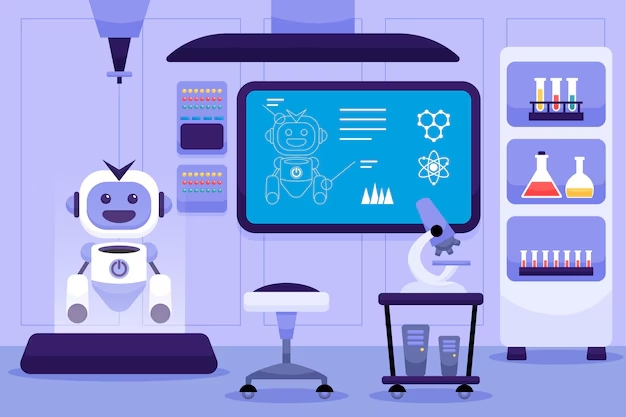AI in Dentistry: Revolutionizing Oral Healthcare in the Modern Era

The dental industry is undergoing a remarkable transformation with the integration of Artificial Intelligence (AI). This groundbreaking technology is not just enhancing the way dentists operate but is also improving patient outcomes and making oral healthcare more accessible. As the demand for precision, efficiency, and innovation grows, AI in dentistry is proving to be a game-changer.
What is AI in Dentistry?
AI in dentistry refers to the use of artificial intelligence technologies to assist and automate various dental processes. From diagnostics to treatment planning, AI leverages algorithms and machine learning to analyze data, predict outcomes, and provide recommendations. This technology enhances the capabilities of dental professionals, enabling them to deliver better care to their patients.
Applications of AI in Dentistry
AI is making its presence felt across multiple facets of dentistry. Here’s how it is transforming oral healthcare:
1. Diagnostics and Imaging
AI-powered diagnostic tools can analyze dental X-rays and 3D scans with incredible precision. These tools detect cavities, bone loss, and even early signs of oral cancer faster than traditional methods.
For example:
AI systems can identify minute abnormalities that may be overlooked by the human eye.
These tools reduce the chances of misdiagnosis and ensure timely treatment.
2. Treatment Planning
With AI, dentists can create personalized treatment plans based on the patient’s medical history and current oral health condition. AI helps:
Optimize procedures for orthodontics and implants.
Predict treatment outcomes more accurately.
3. Virtual Assistants in Clinics
AI-driven virtual assistants are becoming commonplace in dental clinics. They handle administrative tasks like appointment scheduling, patient reminders, and billing, allowing dental professionals to focus on patient care.
4. Patient Education and Engagement
AI-enabled chatbots and applications educate patients about oral hygiene and answer their queries in real-time. These tools promote better oral care habits and increase patient satisfaction.
5. Robotics in Dentistry
AI-powered robots assist in procedures like dental surgeries and orthodontic adjustments. They enhance precision, reduce human error, and improve patient safety.
Benefits of AI in Dentistry
The integration of AI in dentistry brings several benefits:
Improved Accuracy: AI tools eliminate guesswork, ensuring diagnoses and treatments are precise.
Efficiency Gains: Automated systems reduce the time spent on repetitive tasks.
Enhanced Patient Experience: Patients benefit from faster diagnoses, shorter treatment times, and personalized care.
Cost-Effectiveness: AI minimizes unnecessary procedures, cutting down overall costs for both dentists and patients.
Early Detection: AI systems identify potential issues at their earliest stages, enabling preventive care and reducing long-term complications.
AI in Dentistry and Preventive Care
Prevention is always better than cure, and AI excels in this domain. By analyzing large datasets, AI systems can identify patterns and predict future dental issues.
For example:
AI tools monitor patient data to forecast risks like gum disease or tooth decay.
They recommend lifestyle changes and preventive measures tailored to the patient’s needs.
Challenges of Implementing AI in Dentistry
Despite its potential, the adoption of AI in dentistry is not without challenges:
Cost: High initial investment in AI tools and technologies can be a barrier for smaller clinics.
Training: Dental professionals need to be trained to use AI systems effectively.
Data Privacy: Managing patient data securely while complying with regulations is a critical concern.
Integration: Seamlessly integrating AI into existing workflows can be complex and time-consuming.
The Future of AI in Dentistry
As technology continues to evolve, the role of AI in dentistry is expected to expand. Here are some trends to watch for:
AI-Powered Teledentistry: Remote dental consultations powered by AI will become more prevalent, offering accessible care to underserved areas.
3D Printing Integration: AI will enhance 3D printing technology for creating dental implants, crowns, and braces with unmatched precision.
Predictive Analytics: AI systems will become even more adept at predicting oral health issues before they occur.
Smart Dental Devices: Wearables and smart toothbrushes with AI capabilities will monitor oral health in real-time.
How to Prepare for the AI Revolution in Dentistry
For dental professionals looking to embrace AI, here are some actionable steps:
Invest in Training: Equip your team with the skills needed to operate AI systems effectively.
Choose the Right Tools: Select AI technologies that align with your clinic's goals and patient needs.
Ensure Compliance: Stay updated with data privacy regulations to ensure secure patient data handling.
Adopt Incrementally: Start with small AI applications, such as diagnostic tools, and expand as you gain confidence.
Real-World Success Stories of AI in Dentistry
Orthodontics: AI tools have revolutionized how orthodontists design and fit braces, making the process faster and more accurate.
Oral Cancer Detection: AI systems like OralID use fluorescence technology to detect early signs of oral cancer, saving lives through timely intervention.
AI in Implants: Robotics and AI-guided systems ensure precise placement of dental implants, reducing surgery time and improving success rates.
Conclusion
The integration of AI in dentistry marks a significant milestone in the field of oral healthcare. From improving diagnostic accuracy to streamlining treatment processes, AI is reshaping how dental professionals operate and how patients experience care.
As AI continues to evolve, its potential in dentistry will only grow, opening doors to innovations we can barely imagine today. Embracing this technology is no longer an option but a necessity for dental professionals who aim to deliver the highest standard of care.
With its ability to revolutionize diagnostics, treatments, and preventive care, AI in dentistry is undoubtedly the future of oral healthcare.
Note: IndiBlogHub features both user-submitted and editorial content. We do not verify third-party contributions. Read our Disclaimer and Privacy Policyfor details.





